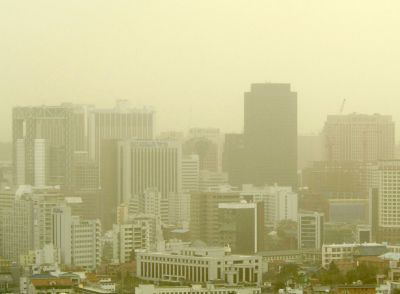SKorea to plant trees in China to reduce 'yellow dust'

Your support helps us to tell the story
From reproductive rights to climate change to Big Tech, The Independent is on the ground when the story is developing. Whether it's investigating the financials of Elon Musk's pro-Trump PAC or producing our latest documentary, 'The A Word', which shines a light on the American women fighting for reproductive rights, we know how important it is to parse out the facts from the messaging.
At such a critical moment in US history, we need reporters on the ground. Your donation allows us to keep sending journalists to speak to both sides of the story.
The Independent is trusted by Americans across the entire political spectrum. And unlike many other quality news outlets, we choose not to lock Americans out of our reporting and analysis with paywalls. We believe quality journalism should be available to everyone, paid for by those who can afford it.
Your support makes all the difference.The Seoul city government will help fund a tree-planting project in a Chinese desert to reduce the amount of harmful "yellow dust" blowing over South Korea, officials said Wednesday.
The city government signed an accord Tuesday to invest 50 million won (42,000 dollars) in the planting project led by Future Forest, a South Korean environmental group operating in China for the past 10 years.
The investment will be used to purchase and plant some 72,000 poplar and desert willow trees in Inner Mongolia's Kubuqi Desert, 600 kilometres (370 miles) west of Beijing.
"Yellow dust" -- fine sand blown from China and Mongolia which sometimes includes toxic chemical smog emitted by Chinese factories -- can cause respiratory disorders.
"We who suffer from yellow dust hope it will contribute to solving the problem and improving the South Korea-Chinese friendly relationship," a Seoul city official handling the project told AFP.
He said the Kubuqi Desert, the world's seventh largest, is blamed for causing 40 percent of "yellow dust" that blankets the Korean peninsula every spring.
Future Forest, in partnership with the All China Youth Federation, has created wooded areas in Chinese arid areas to help alleviate the problem.
Join our commenting forum
Join thought-provoking conversations, follow other Independent readers and see their replies
Comments